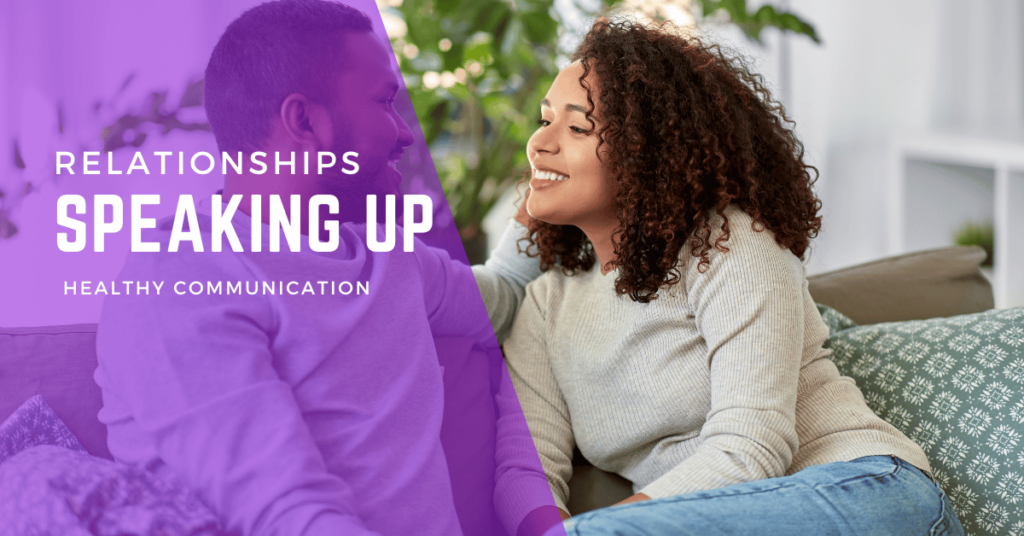Understanding the Challenge
Speaking up in a relationship can be a daunting task, especially for those who consider themselves low-expressive individuals. If you find yourself hesitating to voice your thoughts, feelings, and needs, you’re not alone. Many people struggle with expressing themselves in relationships due to various reasons.
One common factor contributing to this challenge is a lack of early exposure to safe and effective communication. Many of us were never taught that it’s okay to express our thoughts and emotions openly. We may have witnessed conflicts go unresolved or felt that speaking up would only lead to negative outcomes.
Another significant issue is the fear of how our partner might respond. It’s natural to worry about causing tension or conflict by speaking our minds. As a result, we often choose to keep the peace, suppressing our own needs and desires to maintain harmony in the relationship. This pattern can lead to feelings of frustration, resentment, and a sense of being unheard or misunderstood.
The critical realization here is that no one can speak up for you or read your mind. If you keep your thoughts and emotions bottled up, your partner won’t magically understand what’s going on with you. You are the only one who can convey your thoughts and feelings effectively.
Overcoming Low Expression
So, what can you do if you’re a low-expressive person in a relationship? The first step is to recognize that feeling uncomfortable when you speak up is entirely normal, especially if it’s not something you’re used to doing. Speaking up is a skill that can be developed over time.
One effective way to start improving your communication is by embracing discomfort as a part of the process. Initially, it may feel unsettling or even “bad” to express yourself, but that’s okay. It’s a sign of growth and progress. Over time, as you become more accustomed to speaking up, it will feel healthier and more natural.
Here’s a communication hack to get started: Begin by choosing a safe and comfortable setting to share your thoughts or concerns with your partner. Frame your communication using “I” statements, which focus on your feelings and experiences rather than placing blame or judgment on your partner. For example, say, “I feel overwhelmed when we argue,” instead of “You always make me feel overwhelmed.”
Remember that practice makes perfect. The more you practice speaking up and expressing yourself honestly, the more comfortable and empowered you will become in your relationship.
The Journey Towards Effective Communication
In upcoming blog posts, we’ll delve deeper into couples’ communication skills and strategies for improving your ability to speak up and be heard in your relationship. It’s crucial to remember that your feelings, needs, and desires are valid, and expressing them is an essential part of building a healthy and fulfilling partnership.
If you find yourself struggling with low expressiveness, consider seeking guidance from a therapist or counselor who specializes in relationship communication. They can provide valuable insights, tools, and techniques to help you become a more effective communicator in your relationship.
Ultimately, the journey of speaking up in a relationship is a transformative one. It’s about breaking free from the patterns of silence and discovering the power of your voice. By overcoming the fear of how your partner might respond and embracing discomfort as a part of growth, you can pave the way for more profound connections, understanding, and intimacy in your relationship.
So, if you’ve ever felt like speaking up is a challenge, know that you’re not alone, and there’s hope for growth and positive change. Stay tuned for more insights and strategies to enhance your communication skills and strengthen your relationship.

